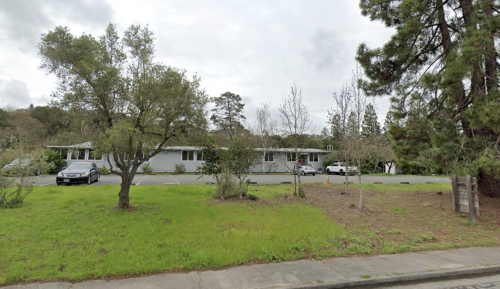

Buckelew Programs - Orenda Center
Treatment Focus
This center primarily treats substance use disorders, helping you stabilize, create relapse-prevention plans, and connect to compassionate support.
Primary Level of Care
Typically the initial stage of treatment for substance use, focusing on medically supervised management of withdrawal symptoms
This provider hasn't verified their profile's information. Are you the owner of this center? Claim your listing to better manage your presence on Recovery.com.
Treatment Focus
This center primarily treats substance use disorders, helping you stabilize, create relapse-prevention plans, and connect to compassionate support.
Primary Level of Care
Typically the initial stage of treatment for substance use, focusing on medically supervised management of withdrawal symptoms
Provider's Policy
Our admissions team will work with you to explore the right payment options based on your needs, ensuring you get the best possible treatment.
Buckelew Programs - Orenda Center
Buckelew Programs - Orenda Center
About Buckelew Programs - Orenda Center
Located in Santa Rosa and serving Sonoma County, Buckelew’s Orenda Center is a co-ed, non-medical residential detox program for adults experiencing moderate withdrawal symptoms. This short-term program, typically lasting 3 to 5 days, provides 24/7 care in a supportive environment to help clients take their first step toward recovery. It operates at ASAM level 3.2 and supports low or no-income individuals.
Prepare for What Comes Next
The Orenda Center uses a social model approach, where trained and credentialed staff offer round-the-clock structure and compassionate care. While the program is non-medical, it prepares individuals to transition into longer-term treatment by helping stabilize and support them through the initial phase of withdrawal. Services are rooted in safety, trust, and the belief that healing begins with connection and consistency.
Step In Without Delay
With capacity for up to 27 adults, the center offers 24/7 prescreens and accepts new intakes daily from 7 AM to 11 PM. Orenda welcomes Sonoma County residents aged 18 and older and accepts Medi-Cal plans, including Partnership HealthPlan and Kaiser Permanente Medi-Cal, as well as private pay.

Center Overview
Treatment Focus
This center primarily treats substance use disorders, helping you stabilize, create relapse-prevention plans, and connect to compassionate support.
CARF Accredited
CARF stands for the Commission on Accreditation of Rehabilitation Facilities. It's an independent, non-profit organization that provides accreditation services for a variety of healthcare services. To be accredited means that the program meets their standards for quality, effectiveness, and person-centered care.

Insurance Accepted
Levels of Care





Treatment
Specializations
Alcohol
Using alcohol as a coping mechanism, or drinking excessively throughout the week, signals an alcohol use disorder.
Drug Addiction
Drug addiction is the excessive and repetitive use of substances, despite harmful consequences to a person's life, health, and relationships.
Who We Treat
Men and Women
Men and women attend treatment for addiction in a co-ed setting, going to therapy groups together to share experiences, struggles, and successes.
Approaches
Evidence-Based
A combination of scientifically rooted therapies and treatments make up evidence-based care, defined by their measured and proven results.
Individual Treatment
Individual care meets the needs of each patient, using personalized treatment to provide them the most relevant care and greatest chance of success.
Therapies
1-on-1 Counseling
Patient and therapist meet 1-on-1 to work through difficult emotions and behavioral challenges in a personal, private setting.
Substances We Treat
Alcohol
Using alcohol as a coping mechanism, or drinking excessively throughout the week, signals an alcohol use disorder.
Drug Addiction
Drug addiction is the excessive and repetitive use of substances, despite harmful consequences to a person's life, health, and relationships.
Languages
Experience
Special Considerations
Transition Program
Patients in a transition program gradually return to life outside treatment, helping lower chances of relapse and continue care in a less intense setting.

We love hearing about your treatment experience
Help individuals and families seeking treatment by sharing your first-hand experience with this treatment provider. Review Guidelines.





